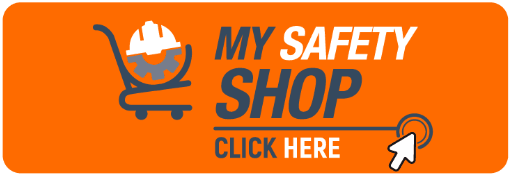Food Drinks and Tobacco Industry Health and Safety Committee

Health and Safety Committees in the Food, Drinks, and Tobacco Industry in South Africa: Ensuring Workplace Safety
In South Africa’s food, drinks, and tobacco industry, the formation of Health and Safety Committees is not just a formal requirement but a cornerstone of maintaining a safe, compliant, and productive workplace. These committees play a critical role in navigating the labyrinth of health and safety regulations, mitigating risks, and fostering a culture of safety that benefits both employees and employers. We delve into the necessity, composition, and duties of Health and Safety Committees within this sector, the legislative landscape governing their operations, potential compliance pitfalls, and the supportive role that MAKROSAFE, as an authorised dealership of SafetyWallet, can play.
The Necessity of Health and Safety Committees
The food, drinks, and tobacco industry is characterised by a diverse range of operations, each with its unique set of health and safety challenges — from processing raw materials to packaging and distribution. Given the inherent risks, including exposure to hazardous substances, machinery accidents, and ergonomic injuries, establishing Health and Safety Committees is critical for identifying, assessing, and mitigating workplace hazards. These committees serve as a platform for collaborative problem-solving, bringing together representatives from different facets of the organisation to ensure a comprehensive approach to health and safety.
Any questions? Kindly leave your details for one of our Expert Consultants to give you a no-obligation Call.
Legislative Framework
The formation and operation of Health and Safety Committees are not arbitrary but are critically anchored in South Africa's legal framework:
- The Occupational Health and Safety Act, 1993 (Act No. 85 of 1993), particularly Sections 19 to 22, mandates the establishment of these committees in workplaces with more than 20 employees. It outlines their composition, duties, and the frequency of meetings.
- Sector-specific regulations under the Foodstuffs, Cosmetics and Disinfectants Act, 1972, and the Tobacco Products Control Act, 1993, also implicitly require the effective management of health and safety risks, further underscoring the importance of these committees.
- Failure to establish or properly operate a Health and Safety Committee can result in legal action, fines, and in severe cases, shutdown of operations by the Department of Labour. Furthermore, non-compliance exposes workers to potential harm, risking their health, safety, and wellbeing.
Composition and Duties
A Health and Safety Committee typically comprises a balanced mix of employer-appointed members and elected health and safety representatives from the workforce. This composition ensures that both management perspectives and workers' concerns are integrated into decision-making processes.
Core duties include:
Risk Identification and Assessment: Undertaking regular inspections and evaluations to identify potential hazards in the workplace.
Development of Safety Policies and Procedures: Collaborating in the creation, implementation, and review of health and safety policies.
Accident Investigation: Participating in investigations following workplace incidents or accidents, to prevent recurrences.
Health and Safety Training: Organising and monitoring training programs for employees, to enhance their awareness and compliance with safety protocols.
Emergency Preparedness: Ensuring that adequate emergency plans and response procedures are in place and known to all workers.
Potential Pitfalls and Fails
Common challenges in the effective operation of Health and Safety Committees include:
Insufficient Training and Awareness: Committee members may lack the necessary understanding or skills to fulfil their roles effectively.
Poor Communication: Failures in communication can hinder the flow of crucial safety information between management, the committee, and the broader workforce.
Lack of Engagement: Low participation rates from workers and management can undermine the effectiveness of the committee.
Inadequate Resources: Without sufficient resources, committees may struggle to implement necessary safety measures or conduct comprehensive risk assessments.
If you have any questions, please feel free to speak to one of our Experts
MAKROSAFE’s Role in Health and Safety Compliance
MAKROSAFE, as an authorised dealership of SafetyWallet, provides vital support to businesses in the food, drinks, and tobacco industry. Their services are tailored to enhance the effectiveness of Health and Safety Committees through:
Training Programs: Offering comprehensive health and safety training for committee members, equipping them with essential knowledge and skills.
Risk Assessment Assistance: Supporting committees in performing thorough risk assessments and developing action plans to address identified hazards.
Policy and Procedure Development: Providing expert consultation in the formulation of robust health and safety policies and procedures.
Regular Audits and Inspections: Conducting audits to ensure ongoing compliance and identify areas for improvement.
Real-Life Solutions
A Tobacco Manufacturing Plant: Previously plagued by frequent accidents due to inadequately managed safety protocols, the plant partnered with MAKROSAFE. By reorganising its Health and Safety Committee and providing targeted training, MAKROSAFE helped reduce incident rates significantly.
A Beverage Production Facility: Facing potential sanctions for non-compliance with health and safety regulations, the facility sought MAKROSAFE’s expertise. Through guidance in effective committee operation and compliance strategy development, the business not only corrected its course but also improved overall safety performance.
Health and Safety Committees within South Africa’s food, drinks, and tobacco industry are indispensable in ensuring workplace safety and regulatory compliance. However, their success hinges on effective composition, clear mandates, and active participation from all stakeholders. With the support of MAKROSAFE and SafetyWallet, businesses can overcome common pitfalls, achieving not only legal compliance but also fostering a proactive safety culture. In doing so, they protect their most valuable asset — their people — while securing the sustained success and reputation of their operations.
Make Safety a Priority Today!
Any questions? Speak to one of our Experts
Let's empower your workforce to work safely, every day! Unlock a Safer Educational Realm with SafetyWallet Benefits.
As a subscriber of SafetyWallet, you're entitled to a 25% discount on our health and safety courses. The value of safety cannot be overstated, and we're committed to supporting institutions in fostering a secure environment. Take advantage of your SafetyWallet subscription and enhance safety standards within your institution. Our courses are also available for purchase on My Safety Shop, ensuring easy access to the training you need.
MAKROSAFE, as a proud SafetyWallet Authorised Dealership of SafetyWallet, offers a free consultation to assess your current training needs and develop a customised training plan. Contact us today and let's build a brighter, safer future for the South African Food, Drinks, and Tobacco Industry, together. Click on the image below to find a SafetyWallet Solution that suits your business (Branch/Site specific) and get the 21 benefits that includes FREE Health and Safety E-Learning for all staff along with the subscription:
To find out what other Additional Services we offer, please click on the picture below:
SAFETYWALLET In Co-operation with MAKROSAFE and MY SAFETY SHOP





